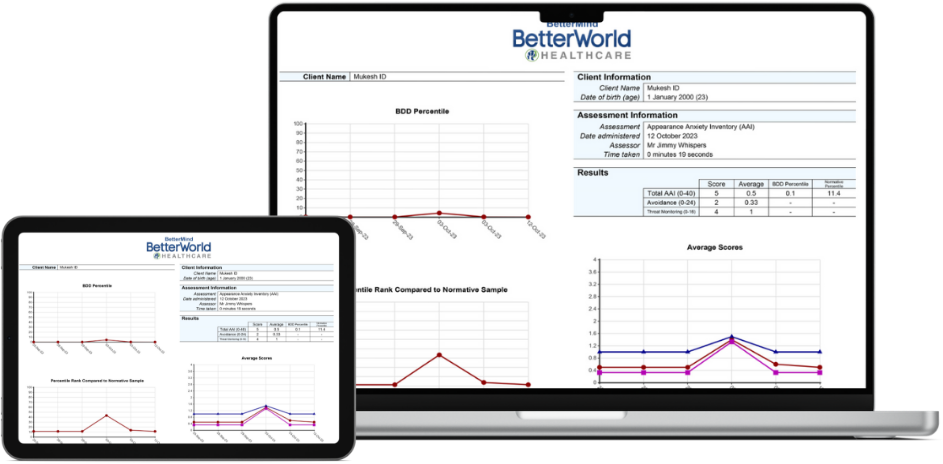Clinical Outcomes in Routine Evaluation 10 (CORE-10)
Assessments
Description
The CORE-10 is a short 10 item easy-to-use assessment measure for common presentations of psychological distress, designed to be used for screening as well as over the course of treatment to track progress. The measure is a shortened version of the 34 items CORE-OM, both of which ask respondents to self-report symptoms over the past week.
Validity
Barkham et al. (2013) validated the CORE-10 in primary care patients as well as the general population, finding it had an internal reliability (alpha) of .9. Based on their analysis it was determined that scores of 11 or above were indicative of clinically significant psychological distress, and scores above 13 likely indicated depression, with a sensitivity and specificity of .92 and .72 respectively.
The CORE-10 manual (2007) reports normative data for validation samples, including the General Population (n=535, M=4.7 SD=4.8) and Primary Care Counseling (n=1835, M=19.7, SD=7.7). The clinical sample comprised people whom were voluntarily receiving counseling in the UK, the majority of clients presented with anxiety (71%) and/or depression (65%). Half of the sample reported experiencing interpersonal problems (50.9%)
Interpretation
Scores are presented as a total score (sum of all items) as well as a mean score (total score divided by 10). Higher scores indicate higher levels of general psychological distress, where a total score of 11 or above is within the clinically significant range.
Two percentile ranks are also presented, allowing comparison of scores with a Clinical Sample and the General Population. Higher percentiles represent higher levels of distress compared to the comparison group. A percentile of 50 for the Clinical Sample is typical of those receiving psychological treatment (approx. total score of 20), with the same score being above the 99th percentile compared to the General Population.
Scores can be put into the following categories:
Less than 10 – non-clinical range
11 to 14 – mild psychological distress
15 to 19 – moderate psychological distress
20 to 24 – moderate-to-severe psychological distress
25 or above – severe psychological distress
Developer
Barkham, M., Bewick, B., Mullin, T., Gilbody, S., Connell, J., Cahill, J., … & Evans, C. (2013). The CORE-10: A short measure of psychological distress for routine use in the psychological therapies. Counselling and Psychotherapy Research, 13(1), 3-13.
Try it and see how BetterMind can enhance your practice

Support
Frequently Asked Questions
You’ve got questions, we’ve got answers. Below you can find answers to some of the most frequently asked questions. If you can’t find the answer you’re looking for, please feel free to reach out to us at info@betterworldhealthcare.com.
I can’t open test results within the Web Browser
Assessment result PDFs are opened in a new tab within the web browser. If you click the results but they do not open, your browser will be blocking the popup. To resolve this, after you have pressed the test result, look out for an alert at the top of your browser notifying you that a pop-up has been blocked, then click "Allow".
I have forgotten my password. How can I reset it?
If you have forgotten your password please press “forgot password” within the app, or on the Web Browser App login page (https://app.bettermind-app.com/login). You will receive a new temporary password via email.
Can a Practitioner access BetterMind from their Smartphone?
No, A Client /Patient can answer assessment questions on a smartphone but the Practitioners/ Users can't administer BetterMind using a Smartphone. A computer, laptop or tablet will have to be used.


